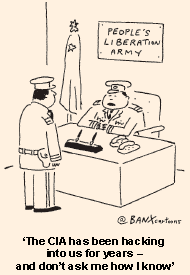A recipe for French rebellion milked by Le Pen
Roula Khalaf, Editor of the FT, selects her favourite stories in this weekly newsletter.
After spending most of his first two years in office presiding over a series of big tax increases, François Hollande is now backpedalling furiously in the face of a public revolt, the latest manifestation of which is set to clobber the president in Sunday’s European elections.
His ruling Socialists took a battering in local elections in March in good part because of anger over rising taxes. They are braced for another defeat on Sunday, with polls placing them third behind the far-right National Front (FN) and the centre-right UMP party of Nicolas Sarkozy, former president.
In a desperate effort to limit the damage, Mr Hollande’s government has said relatively little on Europe in the latest campaign but a lot about taxes. Manuel Valls, the new prime minister, has promised no fewer than two tax cuts in less than a week.
First he said the government would move to take 650,000 low-paid people out of paying income tax this year, at a cost to the government of €500m. A few days later, apparently after some number-crunching with the finance ministry, the figures were hoisted to 1.8m, at a cost of €1bn. Conveniently, this will be funded by higher revenues than expected from a clampdown on tax evasion.
Just two years ago Mr Hollande attributed much of his success in ousting Mr Sarkozy to his promise of a 75 per cent marginal tax on incomes above €1m – a classic case of voters backing a tax that, for the vast majority, hit someone else.
What voters had not bargained for was a series of other measures aimed at closing the budget deficit that ramped up taxes on middle and lower-income households as well as the very rich and big business. These have included not increasing tax thresholds in line with inflation; and scrapping Sarko’s popular exclusion of overtime from taxation. In combination with threshold increases to which the Sarkozy government resorted after the financial crisis, the upshot has been a sharp rise in the number of households paying income tax.
France has traditionally had a low ratio of households paying income tax – only about one in two until recently. But the number has jumped from 17m in 2010 to 20m. With increases in value added tax (the biggest revenue generator of the country’s very high tax burden), households were set for a €12bn overall rise this year – before Mr Valls’ latest promises.
It is a recipe for rebellion being milked by Marine Le Pen, the FN leader, who scents what would be a dramatic victory on Sunday.
Standing in Ms Le Pen’s way is the UMP. Polls, which often underestimate support for the FN, have the two parties in a close race to top the European vote.
The UMP, which did very well in the local elections, should be confident of victory as the bigger, more established mainstream party. But it has its own troubles, not least the lack of a leader.

Mr Sarkozy has been in semi-purdah since he lost to Mr Hollande, contemplating a comeback in the next presidential election in 2017. The party will not choose its candidate until 2016, leaving the gaggle of would-be Sarko successors who run the show in a permanent state of internecine manoeuvring.
A number of senior party figures have been urging Mr Sarkozy to step into this vacuum before Sunday to appeal to voters to rally behind the UMP and throw some sand in Ms Le Pen’s well-oiled wheels.
That might at least clear up confusion over just what the UMP’s European policy is. In the past few weeks Henri Guaino, one of Mr Sarkozy’s closest aides when the latter was president, and Laurent Wauquiez, European minister in Sarko’s government, have caused uproar by leading a stridently eurosceptic campaign much closer to that of the anti-EU, anti-euro FN than the UMP’s official pro-EU policy.
In a comment article signed by 40 UMP parliamentarians, the two decried the EU as “a bureaucratic machine that day by day is reducing liberty and democracy”. Their polemic against the EU’s “blind austerity”, free-trade policies and open borders was straight out of the Le Pen playbook.
Jean-Francois Copé, the UMP’s administrative leader, denounced the dissidents as irresponsible. But Mr Guaino responded by saying he would not vote for the party’s europhile leading candidate in the Paris region. Hardly the best preparation for a knife-edge fight with Ms Le Pen.
Comments